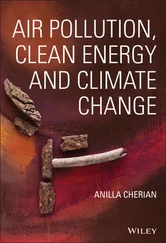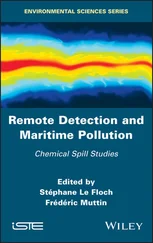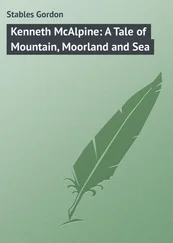Nevertheless we find it difficult to deal with one form of atmospheric pollution, that is with unpleasant smells. Man is not considered to have his olfactory senses particularly well developed as compared with some other mammals, yet he can detect the presence of many odours at a concentration which cannot easily be confirmed by methods of chemical analysis. Anyone who has suffered from smells from farmyards, manure spreading, piggeries or even from chemical factories knows how difficult it is to have such a nuisance abated. He will probably be told that he will soon “get used to it,” and is only certain of more serious consideration when poisonous substances can be detected in amounts which can be shown to be dangerous. The difficulties of stopping intermittent smells being given out from farms or factories are such, and the legal costs which may be incurred without the certainty of success (and then with the prospect of paying the legal expenses of the persons causing the smell) are so great, that many people sell their houses at a loss (hoping that prospective buyers will call when the wind is in the right direction) and move away to another district.
If other mammals have a so much keener sense of smell, they must be even more distressed, perhaps by odours to which we do not object or which we cannot detect. I know of no proof of animals leaving an area because of a smell which is also not toxic, but it seems probable that this sometimes happens. On the other hand the stench in the dens of some carnivores suggests that they are even more tolerant than man of some types of smell.
There is one important point about air pollution which is not always remembered. People complain, usually quite wrongly, that polluted air is short of oxygen, and they believe that they inhale more of this vital gas in the country or on the top of a mountain than when in a town. In fact there is little change in the amount of oxygen in the air even in the stuffiest room; there is certainly more in a crowded lecture room in London than in the rarer, though purer, air at the top of Ben Nevis. Industrial pollution, except for the undiluted exhaust gases from chimneys and engines, hardly reduces the amount of available oxygen. Carbon dioxide, present in pure air in very small quantities (approx. 0·03 per cent) is indeed increased by pollution, but seldom if ever to a concentration which is harmful to animals, and it may even stimulate plant growth. Man’s breathing is upset by air containing 7 per cent of CO 2, and 14 per cent breathed for some minutes can be lethal; such levels of pollution have never been recorded except in such enclcsed spaces as fermentation chambers in breweries. “Stuffiness” is experienced in crowded rooms, but this is not due to the shortage of oxygen or the amount of carbon dioxide. It is due to very small amounts of organic substances given off by the other occupants of the room (“B.O.”), and to shortwave radiation from the walls and people themselves. Many Englishmen – and even more Englishwomen – think a room is stuffy and “polluted” simply because, for once, it is comfortably warm! Polluted air is usually “normal” air, in so far as its content of oxygen, nitrogen and carbon dioxide is concerned, plus the addition of small quantities of added materials. Polluted water, as will be seen in the next chapter, may provide quite different problems.
CHAPTER THREEWATER POLLUTION
As was seen in the last chapter, air pollution has proved difficult to study, and many conflicting results have been obtained. Water pollution seems to have provided a more satisfactory topic for investigation. This is not because the subject is simpler; in fact in some ways it is even more complicated. Air almost always contains sufficient oxygen to sustain life, and “pollution” only means adding a lesser or greater amount of some foreign substance to an otherwise wholesome atmosphere. Water, on the other hand, may be greatly depleted of oxygen so that it cannot sustain most kinds of life, or it may have various substances added, so that animals and plants are poisoned. Some waters have both reduced amounts of oxygen and appreciable amounts of poisons in solution; the inter-relations between these factors, and their effects on aquatic animals and plants, may be very complicated. The advantage of water over air, from the point of view of the research worker, is probably that it forms a definite and restricted environment, from which animals cannot easily move. It is therefore possible to study the long-term effects of pollution under fairly constant conditions, and there is no difficulty in demonstrating the serious effects which pollution can produce. It may also be suggested that water is a marketable commodity of considerable economic value, while air is, theoretically at least, “free.” So although fresh water covers under one per cent of the surface area of Britain, there are probably more scientists studying its pollution than there are investigating air which covers one hundred pet cent of the globe, land and water alike.
Several excellent books on water pollution, and books on freshwater dealing authoritatively on aspects of the subject, have been published in recent years. These include The Biology of Polluted Water by H. B. N. Hynes, Fish and River Pollution by J. R. Erichsen Jones, the New Naturalist Life in Lakes and Rivers by T. T. Macan and E. B. Worthington, and Freshwater Ecology by T. T. Macan. The existence of this extensive and easily obtainable literature has enabled me to make this chapter much shorter than would otherwise be desirable, and to deal with the effects of pollution in a rather different way than would have otherwise been possible.
Man’s requirements regarding water are different from those of “wild life” generally. Man demands what he describes as “pure” water; what he really means is “safe” water. This must contain only a minimum amount of salts, and must be free from those bacteria, protozoa and arthropods which might develop in his body and cause disease. Man thus deliberately interrupts the life-cycle of many other forms of life by the various methods of purification which he uses. He is less concerned with the oxygen content of the water than are the fish and insects which live in it. These efforts to produce a pure water supply for city dwellers can even be thought of as a form of “pollution,” in that water catchments alter, and sometimes sterilise, large areas of the countryside. The conflict between Manchester Corporation and many naturalists and others over the fate of much of the English Lake District illustrates this point.
On the other hand, water which, for public health reasons, is considered to be “grossly contaminated” by sewage, may still be, from the biological point of view, a healthy and desirable environment for many animals. But by the deliberate discharge of his domestic and industrial wastes man most greatly affects streams and lakes, and so alters the whole composition of their flora and fauna.
Natural waters may not only be “impure” from man’s point of view because of the parasites they harbour; they may contain many substances, even poisons, without any human intervention. Quite high concentrations, sufficient to poison some fish and many insects, of lead and copper are found in waters which percolate through strata rich in these metals. Streams running through forests, particularly pine forests, may be contaminated with large amounts of organic matter, and the results may be quite similar to those arising from domestic pollution. As a rule a special flora and fauna is found, consisting of plants and animals adapted to such conditions, in these impure waters. Human pollution usually happens so quickly that impoverishment occurs, often without time to allow the introduction of many of these special types of organism.
Читать дальше












